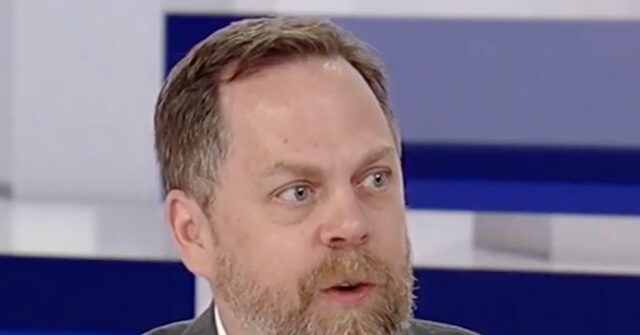On a recent episode of Fox Business Network’s “Kudlow,” John Carney, Breitbart News’ economics editor, articulated concerns regarding the Federal Reserve’s decision to cut interest rates in light of the impending election—a move he characterized as politicized. In the discussion with host Larry Kudlow, Carney emphasized that such an action undermines the integrity of the Fed. Kudlow echoed these sentiments, arguing that the economic indicators do not support the need for a rate cut and asserting that the Fed made an error in deviating from its traditional role of maintaining monetary independence. Both expressed skepticism toward the motivations behind the Fed’s timing, acknowledging that the decision might have stoked doubts about the credibility and objectivity of the central banking institution.
Carney was particularly adamant that the Fed’s failure to withhold the rate cut until after the election was a significant miscalculation. He pointed to the scheduled meeting immediately following the elections as an opportunity for the Fed to reassess economic conditions without the influence of political timeliness. Carney argued that nothing in established monetary theory necessitates making pre-election adjustments, indicating that the decision was driven more by political considerations than by economic necessity. He suggested that by acting hastily, the Fed compromised its standing and credibility in the face of politically charged circumstances.
This concern for credibility also extended to how the Fed reacted to recent economic data, particularly in the jobs market, which Carney deemed “soft.” He criticized the central bank for not waiting to evaluate subsequent reports, including a Fed jobs report and Consumer Price Index (CPI) data, that could have provided a clearer economic picture. The decision to cut rates based on preliminary observations, without considering these broader metrics, further indicated to Carney that a hasty decision was linked to political pressure rather than sound economic reasoning.
Kudlow supported this analysis by highlighting the broader implications of the Fed’s actions on public trust and the importance of maintaining the institution’s nonpartisan stature. He remarked that by succumbing to what he deemed “monetary politics,” the Fed risks lowering its standards and making future monetary policy decisions less credible. This concern reinforces the argument that central banking institutions must operate free from political influence to maintain their effectiveness and credibility in the eyes of the public and financial markets.
Looking ahead, Carney raised concerns about the long-term impact of the Fed’s political entanglements on its operational efficacy. He suggested that regaining the lost trust wouldn’t happen overnight and warned of the challenges ahead in restoring confidence among investors and the general public. The timing and manner of interest rate cuts could become a contentious area of discourse, potentially affecting monetary policy’s perceived reliability and the overarching financial landscape.
In conclusion, both Carney and Kudlow’s discussion reflects a critical viewpoint on the recent decisions made by the Federal Reserve, particularly regarding the intersection of monetary policy and political considerations. The central bank’s actions, seen as politically motivated, have raised alarms about potential credibility issues moving into the future. Carney’s analysis underscores the importance of the Fed’s independence and the potential fallout from decisions that seem to be tied more to electoral cycles than to broader economic trends. As the narrative unfolds, the challenge remains for the Federal Reserve to navigate the delicate balance between its roles as an economic stabilizer and as a politically operative entity.

